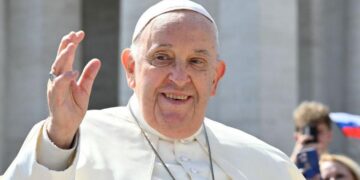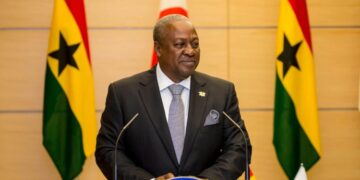The International Monetary Fund (IMF) has said Ghana will require a debt relief agreement with its official creditors to receive the second $600m tranche disbursement under the $3 billion extended credit facility program.
The IMF recently reached a staff-level agreement with Ghana on the first review of the programme, this landmark achievement follows intensive discussions held in Accra from September 25 to October 6, 2023, centered on the progress of vital reforms and the nation’s policy priorities within the context of its three-year program.
To complete the review and unlock another $600 million disbursement for Ghana, bilateral creditors must agree to specific terms of debt treatment, consistent with the financing assurances they provided five months ago. These financing assurances were crucial in securing IMF approval for Ghana’s program, resulting in an initial $600 million disbursement.
Mr Roudet stated that the process was transitioning from a general commitment to a specific credit commitment regarding debt restructuring. This process will also establish specific terms for external commercial creditors.
“I’m very pleased to announce that the IMF staff and Ghanaian authorities have reached a staff-level agreement on the first review of Ghana’s economic program under the Extended Credit Facility arrangement. This staff-level agreement is subject to IMF Management approval and Executive Board consideration once the necessary financing assurances have been received. An agreement with official creditors on a debt treatment in line with program parameters would provide the needed financing assurances. Upon completion of the Executive Board review, Ghana would have access to SDR 451.4 million (about US$ 600 million), bringing the total IMF financial support disbursed under the arrangement, since May 2023, to SDR 902.8 million (about US$1,200 million),” remarked the IMF Mission Chief.
The IMF’s approach to Ghana mirrors its approach to Zambia, which also has an IMF program. In the case of Zambia, the IMF initially required its official creditor committee to sign a memorandum of understanding to access the next disbursement. However, the IMF later approved the payment after bilateral lenders announced an agreement in principle to restructure $6.3 billion of debt in June.
Ghana’s policy reform commitments under the program have yielded positive results, according to the IMF Mision Chief. The country’s economic growth has proven more resilient than expected, fiscal and external positions have improved, the exchange rate has stabilized, and the inflation rate has declined to 40.1% in August 2023.
Ghana is in the process of restructuring nearly all of its $50 billion debt to ensure its sustainability under the IMF program. The domestic debt restructuring has been successfully completed, and the next step involves revamping approximately $13 billion in Eurobonds. Ghana sought IMF assistance in July 2022 after its dollar bonds faced a sharp decline in value, and its attempts at spending cuts failed to convince investors of its ability to meet its debt obligations.




















































































